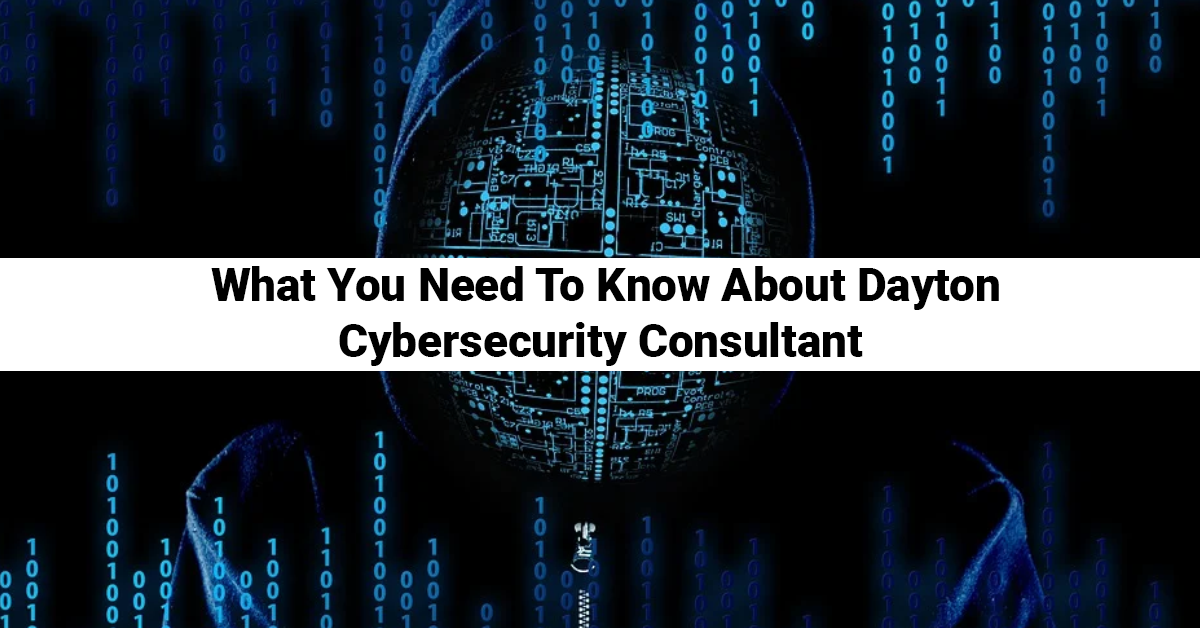What has Cybersecurity Consultant in Dayton become so essential for everyone and every business? To understand this, let's dive deep. Using technology, procedures, and good IT habits to safeguard an organization's computers, networks, devices, and sensitive data against cyber-attacks is referred to as cybersecurity. Businesses can no longer afford to overlook cybersecurity knowledge and resilience. In reality, cybersecurity has shifted from an IT issue to a business one for today's digital businesses.
So, what can you do to safeguard yourself and your company from cyber-attacks and data breaches? While it may seem rational to hire experienced cybersecurity specialists and invest in high-quality cybersecurity management tools and training, knowing the fundamentals of cybersecurity and how to use them in your organization is one of the simplest methods to be prepared and stay secure.
Here are a few things that you need about Cybersecurity Services in Dayton.
Let's look at a few threats that your Cybersecurity Consultant can protect your business from.
1. Ransomware
Ransomware is a cyber threat that frequently targets businesses and government agencies. The objective is to obtain access to computer systems and data to secure them. Therefore, the criminal has managed to prevent people who should have access to the system's data from doing so. This is a form of malware assault that controls access to files and data. For instance, it may alter passwords or make data inaccessible by deleting it.
The purpose is frequently to demand a ransom in exchange for the information. If the organization does not pay the required ransom, individuals may threaten to delete the data. When you collaborate with SpliceNet Consulting to avail the service of Cybersecurity in Dayton, you receive a robust defense solution that protects your business against future threats.
2. Phishing
Phishing is one type of cyber threat that affects both individuals and businesses. Criminals, in this instance, target certain persons to become victims. They utilize emails that appear to be from legitimate institutions, such as government agencies or well-known businesses. Financial entities are sometimes involved.
Phishing attempts to get sensitive information by convincing victims that they are speaking with their bank, the IRS, or another reputable organization. They frequently lead victims to pay money to crooks or provide data or credit card information that these criminals may utilize somehow.
3. Social Engineering
Human hacking is a type of social engineering. In a nutshell, scams are utilized to get private information or assets. In general, it entails enticing individuals into disclosing their data. It's also a sort of malware because it frequently incorporates malicious software used to gain access to restricted locations. Social engineering can occur online and offline, although it is more likely to happen online. It is based on the use of deception.
Your cybersecurity experts can provide you with the solutions mentioned below to protect your business from vulnerable attacks.
4. Application Protection
Application security is a subcategory of cybersecurity that focuses on protecting software and devices. In this field, the objective is to guarantee that any software designed to secure computer networks and systems is not hacked. If it is hacked, would-be burglars might acquire access to the data that the program is supposed to ensure. Therefore, those in this profession will endeavor to reduce the dangers of application-related access to protected data.
5. Operational Security
Those in charge of operational security are more concerned with the processes and decision-making that go into handling data to safeguard the specific assets that are required. For instance, when users try to obtain access to encrypted data in a network or cloud, protection usually involves maintaining their permissions. Establishing and controlling access is part of this. They also work to design and manage protocols for storing data, such as how and where it will be kept. Determining if and when data is shared, how this happens, and how it is retained and secured when others access it is a significant component of cybersecurity.
6. Securing a Network
Network security aims to keep a computer network safe from dangers such as intruders. Targeted attackers are looking for access to a specific company or network, and those looking for a simple way to install malware fall under this category. Cybersecurity consultants are mainly concerned with preventing unauthorized access.
Wrap Up!!
It has never been more critical for companies to protect themselves from damaging cyberattacks. Unfortunately, recent cyberattacks have become increasingly sophisticated, and many businesses lack the technology or skills to prevent hackers from breaching their defenses. Contact SpliceNet Consulting if you're trying to improve your IT infrastructure and need a dependable cybersecurity consultant for your company. Our cybersecurity experts have developed solid cyber tactics.


